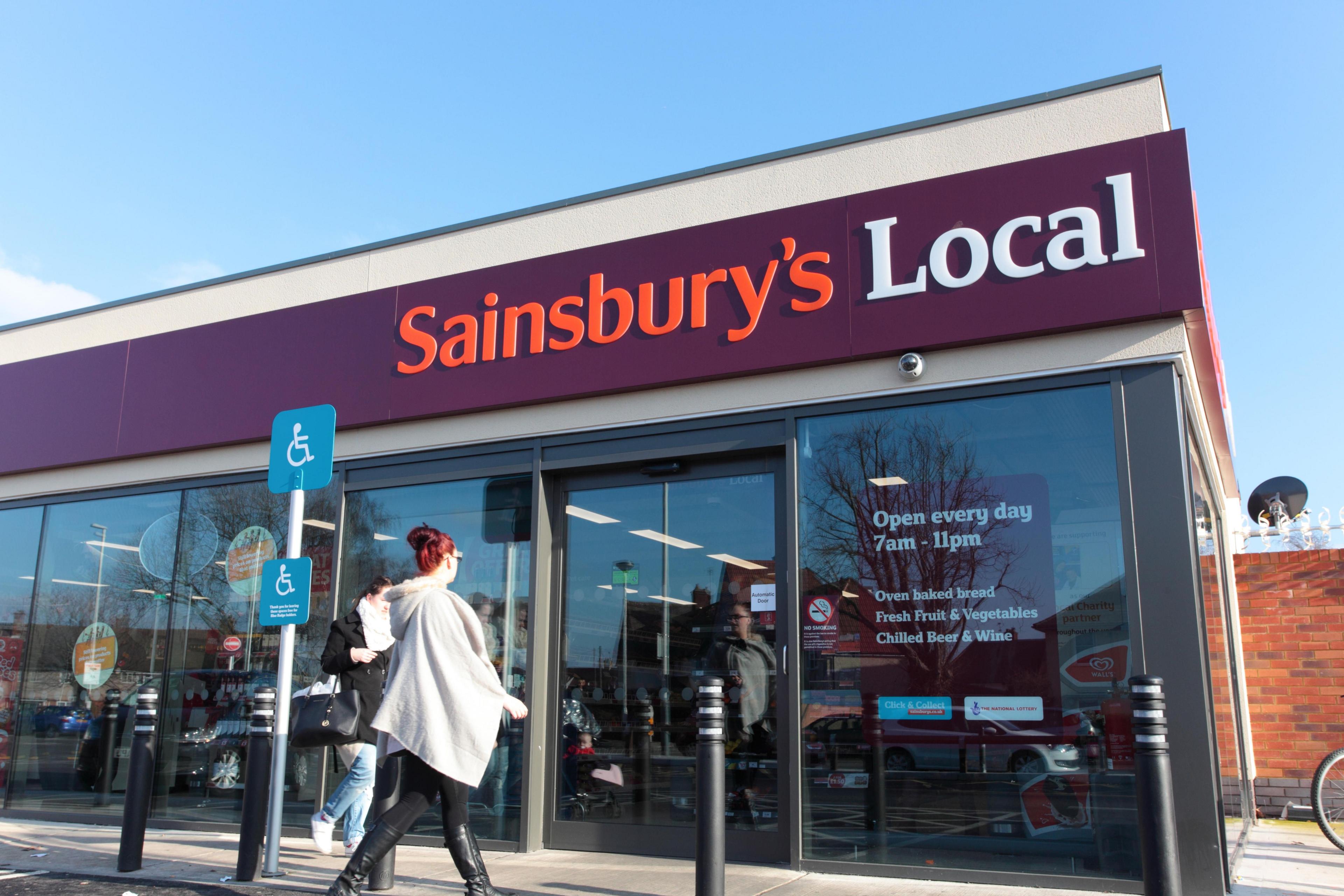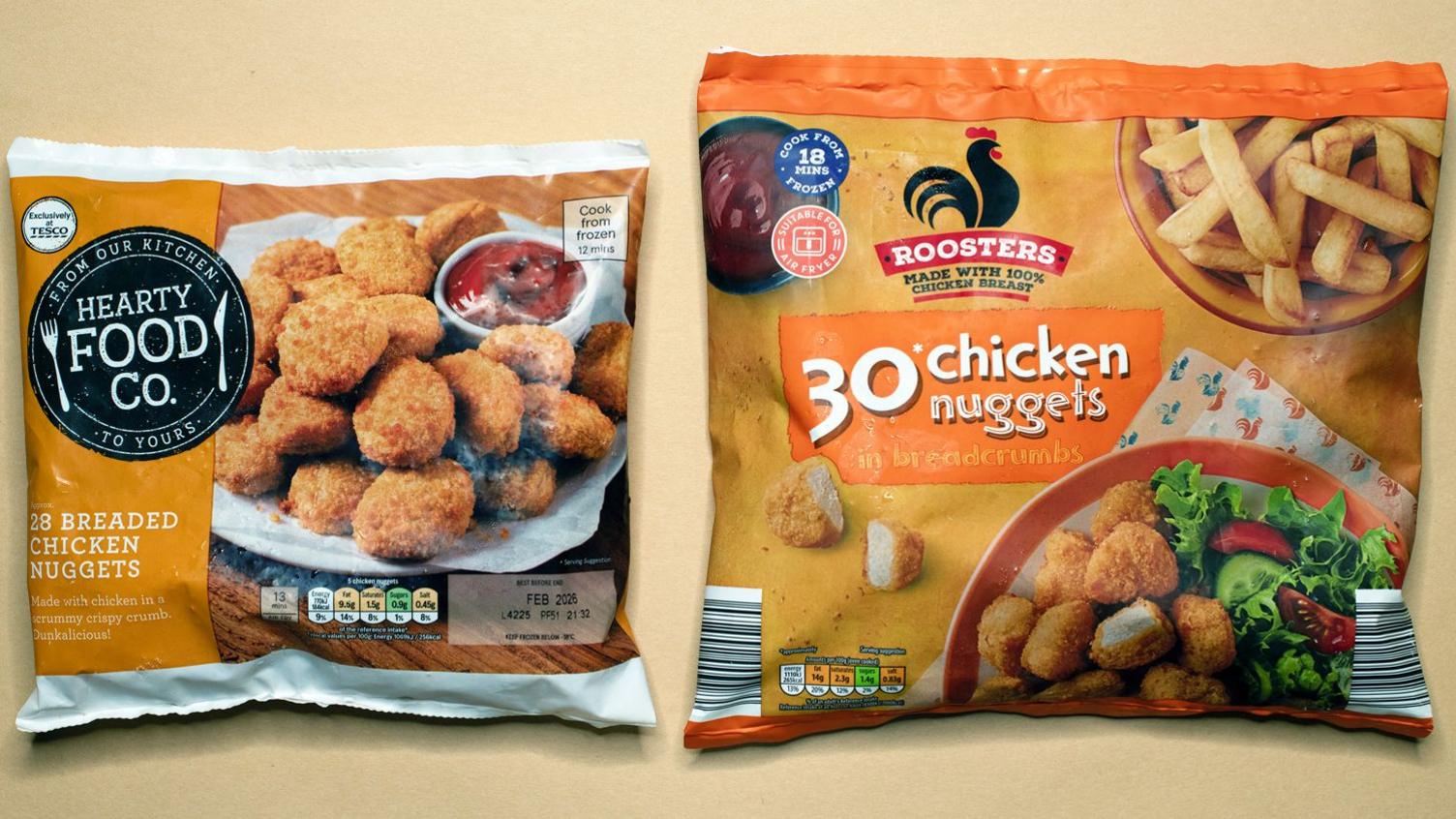Sainsbury's to rival Aldi prices in smallest stores

- Published
Sainsbury’s has said it will match the price of up to 200 Aldi products in its smaller stores as it battles rivals to get more customers in its convenience stores.
Shopping locally for groceries may be handy but people who rely on convenience stores can end up paying far more.
Campaigners have criticised retailers for not doing enough to close the price gap with large supermarkets, especially during the cost-of-living crisis.
Latest research for the BBC suggests that a frozen pizza is 26% more expensive in a convenience store compared with a main supermarket.
Sainsbury’s is the first big supermarket to extend its Aldi price match campaign across its convenience stores.
Sainsbury’s won’t disclose how much its new initiative will cost. Its Nectar loyalty price scheme will still only be in supermarkets and not convenience stores.
Aldi is regularly voted by consumer group Which? as the UK’s cheapest supermarket. Sainsbury’s, Tesco, Morrisons and Asda all have schemes to price match its prices on everyday essentials in their big stores.
In September, BBC Panorama found dozens of Tesco products price-matched to Aldi were not like-for-like. For example, Tesco's chicken nuggets contained 39% chicken compared with 60% in the Aldi one.
Aldi’s growth has slowed this year as cost pressures eased for many shoppers.
“What we are now seeing is the growth of convenience,” said Ananda Roy from consumer analysis company, Circana.
Waitrose, Asda, Morrisons and M&S are all opening more of these stores.
Convenience comes at a price
But shoppers pay a premium for convenience.
According to a snapshot from Circana, based on an analysis of 29 everyday products, shoppers are currently paying an average of 10% more for the same item in convenience stores than main supermarkets.
Some everyday items were a lot higher. In September based on the average price per pack or unit:
Bread was 21% more expensive
Prepared rice packets cost 36% more
Frozen pizza was 26% more
Ketchup cost 14% more
Consumer group Which? has long campaigned on the issue and recently found that shopping regularly at a convenience store over the course of a year could add an extra £800 on a grocery bill for a weekly basket of goods.
Mr Roy said while convenience stores were more expensive to run and customers should expect to pay more for greater levels of service and convenience, retailers could be doing more to reduce the gap on basic food staples that are bought on a regular basis.
“The challenge is for greater transparency on price in convenience stores, especially where loyalty and promotion prices are not the same as those offered in other stores,” argues Mr Roy.
Supermarkets came under intense scrutiny as inflation soared and some have responded by adding cheaper, own label products in their smaller stores.
Convenience is one of the few parts of retail growing well. As supermarkets continue to compete fiercely for customers, Sainsbury's extension of Aldi price match could prompt its rivals to follow to suit.
Related topics
- Published23 September 2024
